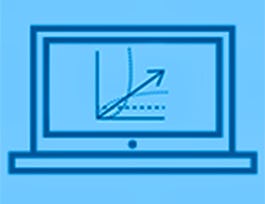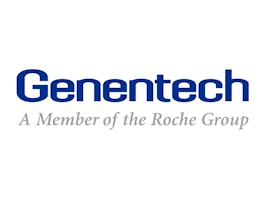Much of the world's data resides in databases. SQL (or Structured Query Language) is a powerful language which is used for communicating with and extracting data from databases. A working knowledge of databases and SQL is a must if you want to become a data scientist.



SQL for Data Science with R
This course is part of multiple programs.

Instructor: Rav Ahuja
Sponsored by Coursera Learning Team
21,832 already enrolled
(159 reviews)
Recommended experience
What you'll learn
Create and access a database instance on the cloud
Compose and execute basic SQL statements - SELECT, INSERT, UPDATE, DELETE, CREATE, DROP
Construct SQL statements to filter, sort, group results, use built-in functions, compose nested queries, access multiple tables
Analyze data from Jupyter using R and SQL by combining SQL and R skills to query real-world datasets
Details to know

Add to your LinkedIn profile
15 assignments
See how employees at top companies are mastering in-demand skills

Build your subject-matter expertise
- Learn new concepts from industry experts
- Gain a foundational understanding of a subject or tool
- Develop job-relevant skills with hands-on projects
- Earn a shareable career certificate


Earn a career certificate
Add this credential to your LinkedIn profile, resume, or CV
Share it on social media and in your performance review

There are 6 modules in this course
Structured Query Language, or SQL, provides a standard language for selecting and manipulating data in a relational database. Understanding SQL is a foundational skill that you must have when applying data science principles in R because SQL is the key to helping you unlock insights about the information stored deep inside relational databases. In this module, you will learn some basic SQL statements and practice them hands-on on a live database.
What's included
5 videos2 readings2 assignments3 app items2 plugins
In this module, you will explore the fundamental concepts behind databases, tables, and the relationships between them. You will then create an instance of a database, discover SQL statements that allow you to create and manipulate tables, and then practice them on your own live database.
What's included
6 videos3 readings2 assignments3 app items2 plugins
In this module, you will learn how to use string patterns and ranges to search data and how to sort and group data in result sets. You will also practice composing nested queries and execute select statements to access data from multiple tables.
What's included
7 videos4 readings4 assignments4 app items5 plugins
In this module, you will learn the benefits of using R to connect to relational databases and how to persist R database objects in files. You’ll also learn some of the similarities between R data frames and relational databases, including how data types compare and when you must convert from one type to another to improve the effectiveness of your data analysis. Finally, you’ll learn different methods for connecting to a database from R.
What's included
10 videos3 readings4 assignments5 app items5 plugins
In this module, you will learn the full process of accessing and querying databases using R. You’ll learn how to create the logical and physical model of the database and then implement the model by creating the physical database objects and loading them with data. Finally, you’ll examine an example of accessing and querying the database.
What's included
6 videos2 readings2 assignments2 app items2 plugins
In this assignment, you will be working with multiple real-world datasets for the Canadian Crop Data and Exchange Rates. You will be asked questions that will help you understand the data just as you would in the real world. You will be assessed on the correctness of your SQL queries and results.
What's included
1 reading1 assignment1 peer review4 app items1 plugin
Why people choose Coursera for their career




Learner reviews
159 reviews
- 5 stars
63.52%
- 4 stars
18.23%
- 3 stars
10.06%
- 2 stars
2.51%
- 1 star
5.66%
Showing 3 of 159
Reviewed on Apr 11, 2022
Very useful course for those who wants to learn SQL.
Reviewed on Oct 28, 2022
Well designed course with exposure to ODBC and JDBC...
Reviewed on Oct 13, 2024
Overall, it's an excellent course for beginners and intermediate data enthusiasts looking to enhance their skills in SQL and R.
Recommended if you're interested in Data Science

Open new doors with Coursera Plus
Unlimited access to 10,000+ world-class courses, hands-on projects, and job-ready certificate programs - all included in your subscription
Advance your career with an online degree
Earn a degree from world-class universities - 100% online
Join over 3,400 global companies that choose Coursera for Business
Upskill your employees to excel in the digital economy






